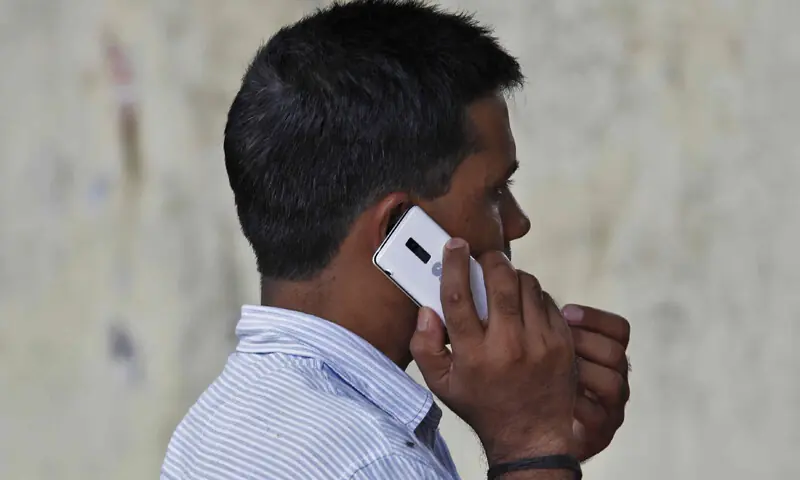By Bureau Report
Copyright dawn

PESHAWAR: Peshawar High Court on Thursday directed Khyber Pakhtunkhwa additional chief secretary home and tribal affairs to take measures for resolving the issue of disruption of mobile phone signals on premises of courts owing to installation of signal jammers in the nearby central prison.
A bench consisting of PHC Chief Justice S.M Attique Shah and Justice Mohammad Ijaz Khan also asked ACS Mohammad Abid Majeed to submit a detailed report of a meeting scheduled the same day with all the stakeholders for amicable resolution of the matter.
The bench, while hearing a petition filed by Peshawar High Court Bar Association against disruption of internet and mobile phone signals on courts premises specially Judicial Complex, showed concerns over the problems faced by litigants and lawyers because of the issue.
The bench fixed the case again for hearing today (Friday) after Abid Majeed gave a detailed briefing and informed it that a meeting had been scheduled for Thursday wherein all relevant stakeholders including KP Bar Council vice chairman and presidents of PHCBA and Peshawar Bar Association had been invited.
PHC seeks report of scheduled meeting of ACS with stakeholders on the matter
The ACS hoped that through mutual consultation and deliberation, the matter would be resolved amicably in a manner that would address the legitimate concerns of legal community while also ensuring security imperatives of the prison administration.
The bench was hearing the petition amid strike by lawyers on the issue in the district courts on Thursday.
PHCBA president Aminur Rehman Yousafzai, vice president Arshad Ali Nowshervi, general secretary Zahidullah Zahid, PBA president Qaiser Zaman, KPBC vice chairman Ahmad Farooq Khattak, Dr Adnan Khan, Asad Zaib Khan and other lawyers appeared for the petitioner.
They requested the bench to issue directives to government to restore full signals/telecommunication traffic on courts premises.
ACS Abid Majeed, Inspector General of Prisons Usman Masood and the superintendent of Peshawar Central Prison, Najam, appeared along with the KP advocate general, Shah Faisal Uthmankhel, and the additional advocate general, Inam Khan Yousafzai.
The ACS apprised the bench that a significant number of high-risk and high-profile criminals including convicts affiliated with proscribed organisations had been confined in three main central prisons of the province situated in Peshawar, Mardan and Haripur.
He stated that secured cells had been designed and designated for those prisoners to be lodged therein. However, he added that despite strict security protocols, some of those inmates managed to gain unauthorised access to mobile phones, which were allegedly used to establish contacts with their associates outside the jail for purpose of engaging in or facilitating unlawful and potentially dangerous activities.
“In order to sever/cut communication links of such high-risk inmates, home and tribal affairs department was constrained to enter into an agreement with National Radio and Telecommunication Corporation (NRTC) for installation of signal jammers on the jail premises,” said Mr Majeed.
Unfortunately such a step, he added, may have inadvertently caused disruption to telecommunication signals in the adjoining areas including Judicial Complex and may have given rise to grievances among members of legal fraternity.
The bench observed: “We certainly appreciate the action so taken by the worthy additional chief secretary in the interest of maintaining safety and security of central prison and inmates confined therein, however, we cannot remain unmindful of the adverse consequences that may have resulted from installation of signal jammers particularly their impact on the access to justice of ordinary litigants.”
“We are deeply concerned about the hardships faced by voiceless and underprivileged litigants, who, due to disruption of telecommunication signals, may have been unable to establish timely contact with their counsels. This, in many instances, could result in unintended disposal of their cases for non-prosecution or in avoidable adjournments owing to their inability to appear before courts,” the bench observed.
Such consequences, the bench added, if left unaddressed, risk undermining the right to fair access to justice and legal representation, which must be preserved at all cost.
The bench directed the ACS to submit a detailed report of proceedings including minutes of the scheduled meeting duly signed by all the participating stakeholders.
Published in Dawn, September 19th, 2025



